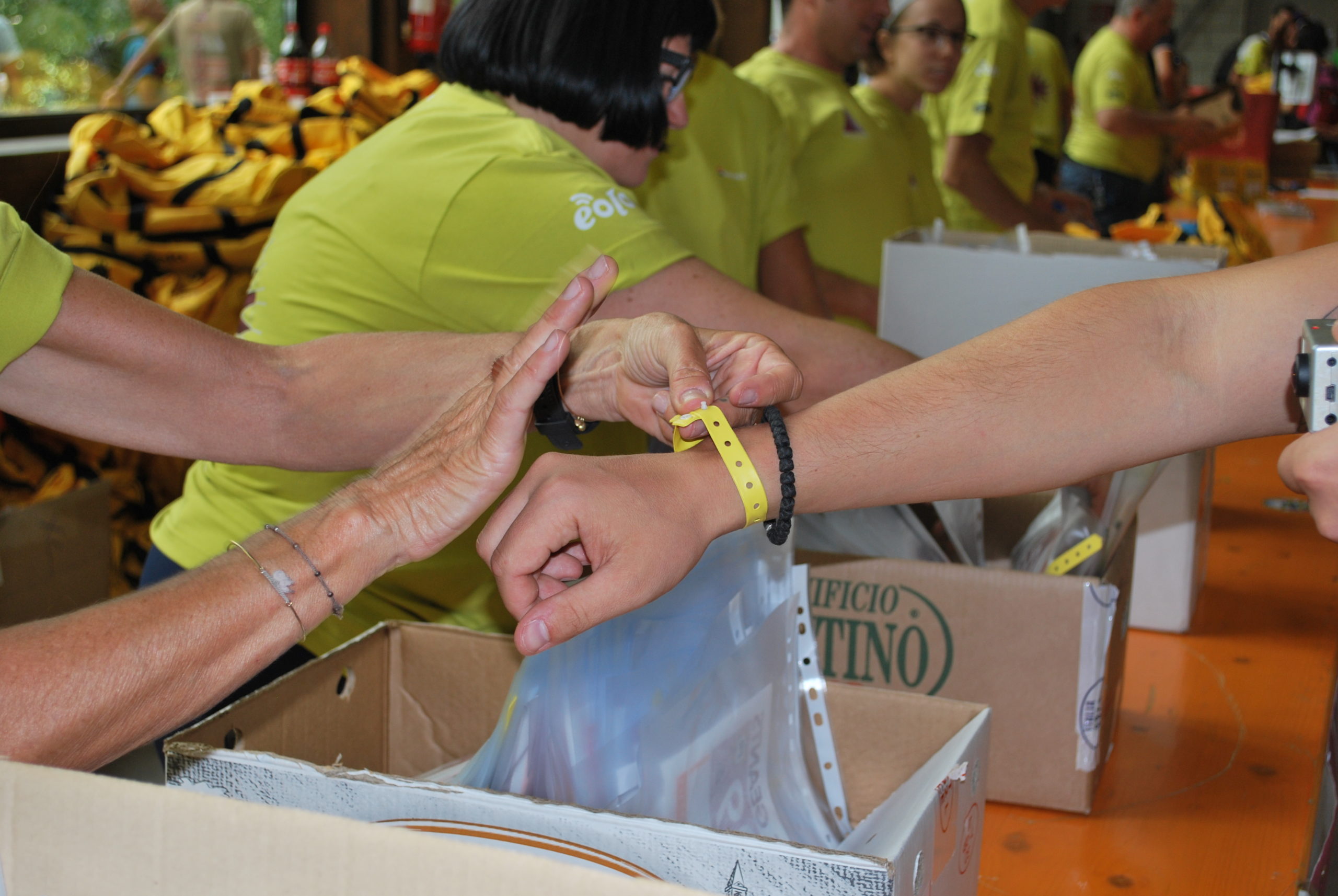RFID Cashless Payments:
the Key to the Future of Events
The way we pay at events is changing. From music festivals to local fairs, more and more organizers are embracing cashless systems powered by RFID wristbands. Faster transactions, enhanced security, and a seamless guest experience make this innovation not just a trend, but the new standard for successful events.
In recent years, the events industry has undergone a profound transformation, driven by new audience expectations and the adoption of innovative technologies. Among these, cashless systems powered by RFID have emerged as one of the most effective solutions to enhance the participant experience and simplify the work of organizers. From music festivals and food & wine fairs to sporting events and local gatherings, the ability to pay with a simple wristband has become synonymous with modernity, security, and efficiency.
What cashless means and why it matters
A cashless event is one where participants no longer need cash, credit cards, or physical tokens to make purchases. All they need is an RFID wristband linked to a rechargeable digital wallet, which allows payments in just seconds by simply tapping the wristband on a reader.
The benefits are immediate: shorter queues at sales points, no issues with change, greater security in handling money, and an overall smoother user experience. For attendees, this means freedom and convenience; for organizers, less complexity and more control.
The role of NFC wristband
RFID wristbands are far more than just a gadget: they are the core of the cashless revolution. Durable, customizable, and available in different materials (silicone, PVC, Tyvek, or fabric), they adapt to any type of event. Beyond payments, they can also be used to manage access, VIP zones, and side activities, creating an integrated ecosystem that simplifies logistics and enriches the guest experience.
Their versatility combines practicality with visual identity: personalized colors, logos, and graphics transform wristbands into powerful branding tools and memorable keepsakes.

Discover 'tag4pay' application for cashless payments
Benefits for participants
For attendees, cashless means peace of mind and immediacy. No more risk of losing cash or cards, no need to carry tokens to exchange at kiosks. With a single wristband, guests can enter the venue, buy food and drinks, purchase merchandise, and join activities without interruptions.
Another key benefit is the reduction of queues: faster transactions mean less time wasted waiting and more time enjoying the event, whether it’s a concert, a sports match, or a tasting experience.
Benefits for organizers
While participants enjoy convenience, organizers benefit primarily from security and control. By eliminating cash, the risks of theft and errors are drastically reduced. Each transaction is recorded with precision and made available in real time, offering a clear picture of financial flows.
At the end of the event, detailed reports allow for in-depth analysis of sales and consumption, identifying strengths and areas for improvement, and enabling more effective planning for future editions. Additionally, the ability to link the system to promotions and marketing initiatives opens new opportunities for audience engagement.
A future already here
More and more organizers are adopting cashless as the standard—and the reasons are clear: greater operational efficiency, enhanced security, happier attendees, and new growth opportunities. With solutions like Global Tag’s Tag 4 Pay, which works even without an internet connection and integrates seamlessly with personalized RFID wristbands, going cashless is not just an innovative choice, but a necessity to stay competitive. The future of events depends on the ability to deliver smooth, safe, and memorable experiences. Cashless systems powered by RFID are the key to achieving this goal, bringing tangible benefits to both organizers and participants. In an increasingly dynamic and competitive sector, cashless is no longer just a trend—it is a new standard here to stay.
do you want to know more?
